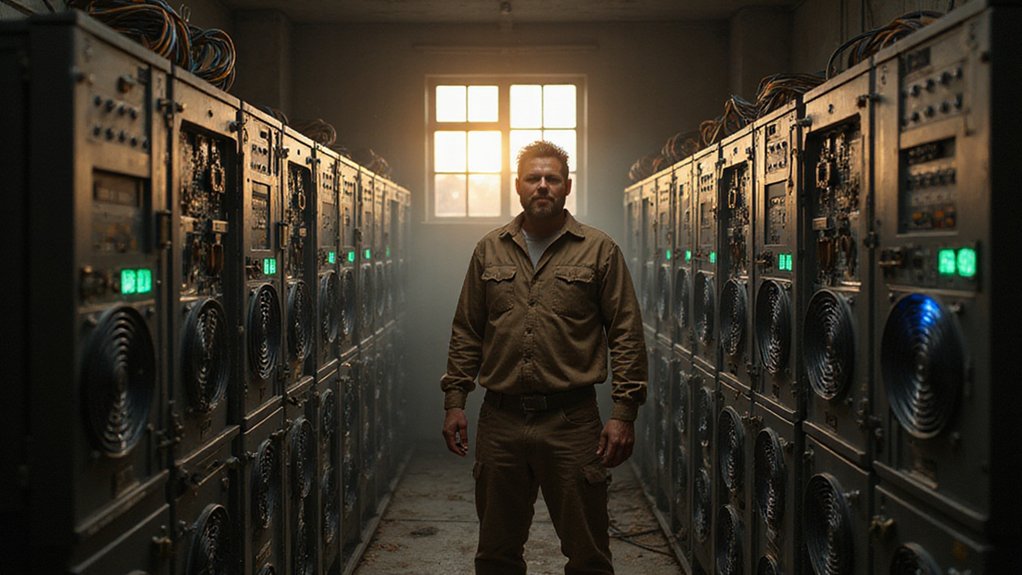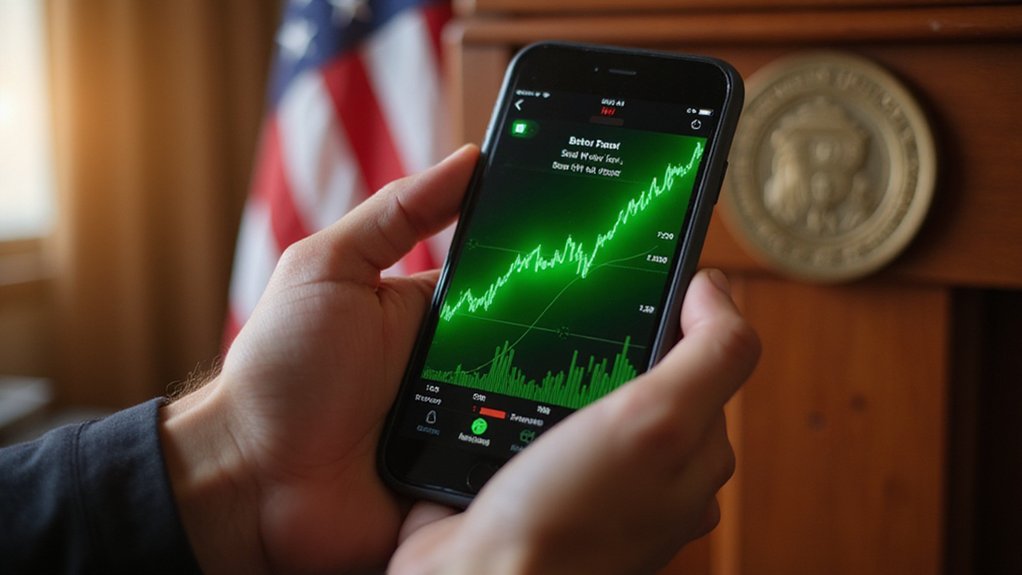Against odds that would make casino operators weep with envy, a solo Bitcoin miner wielding a modest 2.3 petahash-per-second mining rig has struck digital gold, successfully solving a block that netted nearly $350,000 in rewards.
The miner, operating through CKpool‘s solo mining infrastructure, overcame staggering 1-in-2,800 daily odds to claim block rewards totaling 3.173 BTC—comprising the standard 3.125 BTC subsidy plus accumulated transaction fees. This achievement occurred against a network difficulty exceeding 126 trillion, a metric that would have been incomprehensible to early Bitcoin adopters who could mine blocks using laptop processors.
What makes this victory particularly remarkable is the David-versus-Goliath nature of contemporary Bitcoin mining. While industrial operations deploy hundreds of petahashes across warehouse-sized facilities, this miner succeeded with equipment that represents a rounding error compared to major mining pools’ collective hash rates. The disparity is akin to winning a Formula 1 race driving a well-tuned Honda Civic.
Recent solo mining successes, including notable wins on blocks 899,826 and 903,883, suggest that individual miners haven’t entirely surrendered to corporate mining behemoths. Some operators have discovered innovative approaches, such as temporarily renting massive hash power (up to 261 PH/s) to improve their odds—a strategy that transforms solo mining from pure chance into calculated speculation.
The financial implications extend beyond the immediate windfall. Each solo mining victory demonstrates Bitcoin’s continued potential for decentralization, countering narratives about inevitable mining centralization.
However, the mathematics remain brutally unforgiving: solo mining success requires either extraordinary patience, substantial luck, or strategic timing that borders on prophetic.
Mining pools dominate the landscape precisely because they offer predictable, albeit smaller, returns compared to solo mining’s feast-or-famine proposition. Yet events like this $350,000 jackpot remind smaller operators that Bitcoin’s probabilistic nature occasionally rewards the bold—or perhaps the foolhardy.
The mining community’s excitement over such victories reveals deeper anxieties about individual participation in an increasingly industrialized ecosystem. Whether this represents sustainable opportunity or merely statistical noise depends largely on one’s tolerance for astronomical odds and financial risk.
While solo mining victories provide thrilling headlines, the underlying energy consumption raises significant environmental concerns, with each Bitcoin transaction carrying a carbon footprint comparable to driving 1,600-2,600 kilometers.






